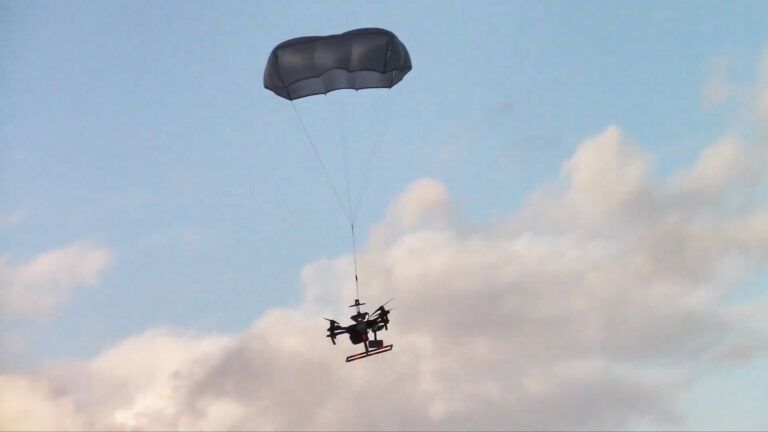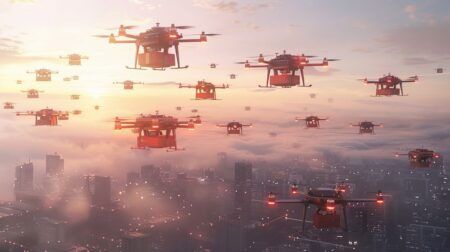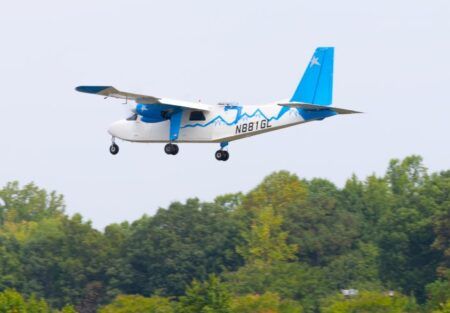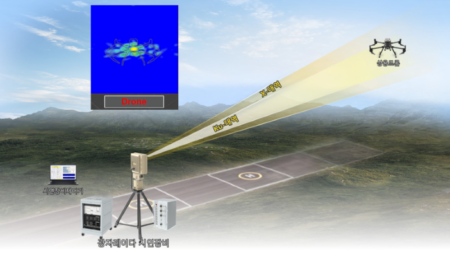Canadian firm Aerial Vehicle Safety Solutions drone parachute system has been validated as compliant to industry standards at the NUAIR UAS Test Site.
The testing was conducted in partnership with the Northeast UAS (unmanned aerial systems) Airspace Integration Research (NUAIR) at Griffiss International Airport in Rome, New York.
Aerial Vehicle Safety Solutions’ (AVSS) parachute recovery system (PRS-M200) was tested using a DJI Matrice 200 drone. The system automatically deploys a parachute if the drone malfunctions in the air. The parachute recovery system is the third such system validated at the site for the DJI Matrice series, advancing the potential for commercial drone package delivery and routine flights over people.
Currently, the FAA prohibits most drones from being flown directly over people. Professional drone operators can apply for a waiver from that restriction if they can demonstrate they have robust safety mitigations in place – including a validated parachute system.
The drone safety system developed by AVSS uses a combination of hardware and software and is designed so that it works easily with any DJI Matrice drone. In the event of a drone malfunction while airborne, the system automatically cuts power to the drone and deploys the parachute, decreasing the potential of harm to people or property on the ground.
The validation involved putting the AVSS through 45 functionality tests across five different failure scenarios.
Josh Boudreau, chief technology officer at AVSS said, “When preparing for this complex, strenuous parachute standard validation, we knew that we needed to find a third-party testing partner that deeply understood the standard and testing procedures.
“After initial conversations with a few potential third-party test sites, it was clear that the team at NUAIR and the New York UAS Test Site were knowledgeable, helpful, and pragmatic.”
The ASTM International standard specification for small UAS parachutes, allowing AVSS to fulfill their presales for this product that were dependent on this safety validation.
“This whole industry is based around safety,” said Tony Basile, chief operations officer at NUAIR, which manages the FAA-designated New York UAS Test Site at Griffiss International Airport.
“Unlocking the full capabilities of commercial drone use is dependent on the continued development of these safety standards and having a place where companies can have their product validated to those standards.
The ASTM consensus standard was developed by industry stakeholders as well as representatives from the FAA in late 2018 after more than a year of work. The completion of the ASTM F3322-18 testing with NUAIR, along with the required engineering analysis, has also been acknowledged by Transport Canada as a means of compliance for the DJI M200 series for operations over people under the Transport Canada RPAS Safety Assurance declaration for modified drones.





